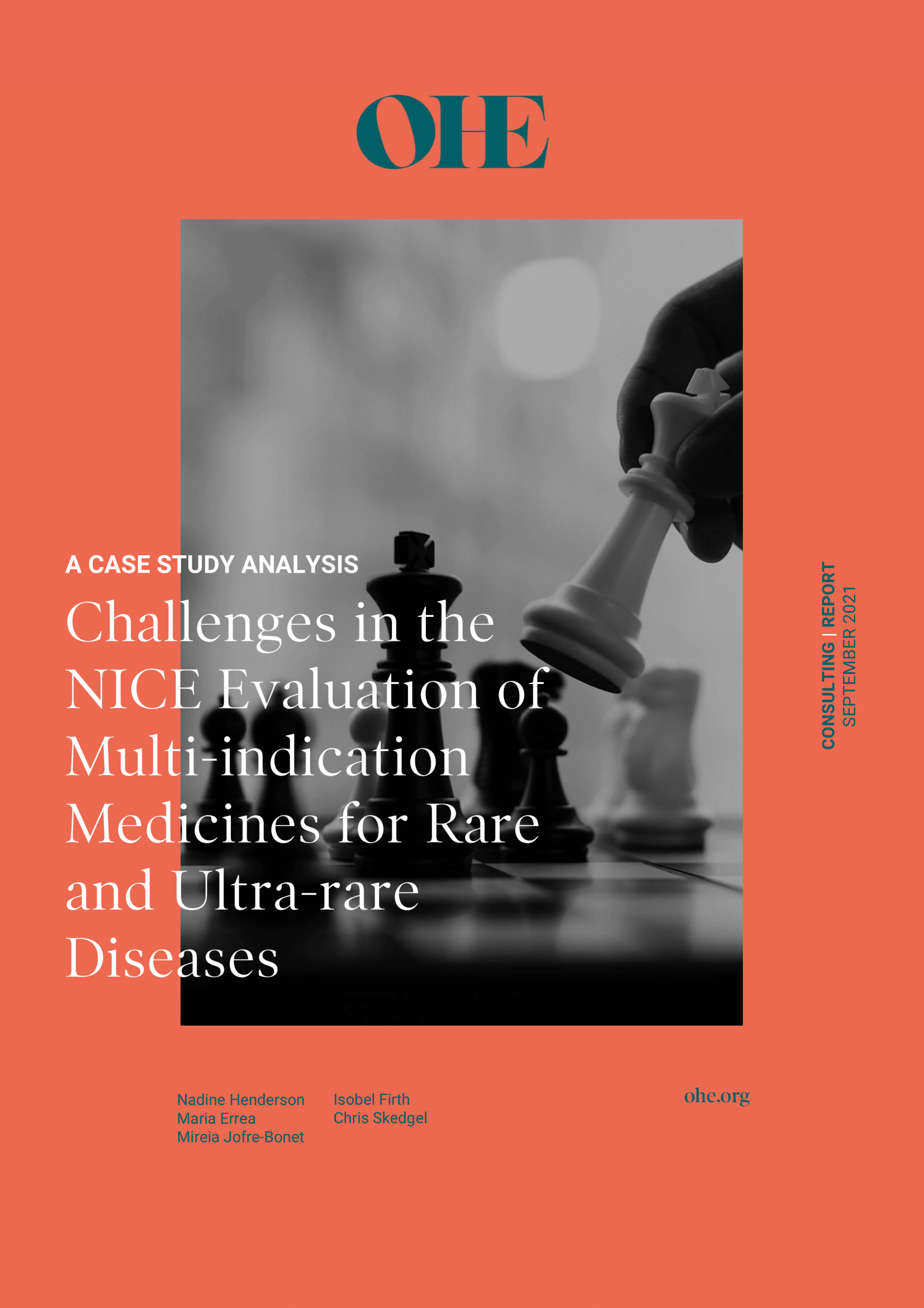Medicines for rare and ultra-rare conditions face distinct economic and ethical challenges compared to medicines for more common conditions. These challenges are implicitly acknowledged by the…
Medicines for rare and ultra-rare conditions face distinct economic and ethical challenges compared to medicines for more common conditions. These challenges are implicitly acknowledged by the National Institute of Health and Care Excellence (NICE) by providing an auxiliary appraisal route for highly specialized technologies. However, concerns have been raised regarding the appraisals of medicines that don’t meet the strict criteria and are, therefore, evaluated via the standard appraisal route (STA). The STA pathway was not designed to consider the greater uncertainty associated with medicines for rare and ultra-rare conditions.
In this report, we develop case studies to describe these challenges and how NICE approaches them in their assessment of these medicines. We conducted a series of stakeholder interviews to identify key perceived challenges, better understand the intricacies of the NICE appraisal process and the interplay with NHS England. The case studies include examples of cancer and non-cancer medicines, medicines with multiple indications, and those appraised by the STA and HST routes.
In some cases, we find a flexible and pragmatic approach towards uncertainty; these positive examples include consideration of bespoke statistical modelling, expert testimony, and/or the use of real-world evidence. Less positive examples were also observed, especially around inflexible consideration of uncertainties inherent around ultra-rare conditions.
NICE has recently proposed promising updates to their methods guidance, and NHS England has announced their intention to implement an Innovative Medicines Fund to fast-track new medicines, such as cutting-edge gene therapies. The authors believe these changes to be encouraging but draw attention to potential shortcomings and areas that may still require improvement to ensure that patients with rare and ultra-rare diseases are treated fairly, relative to patients with more common conditions.
